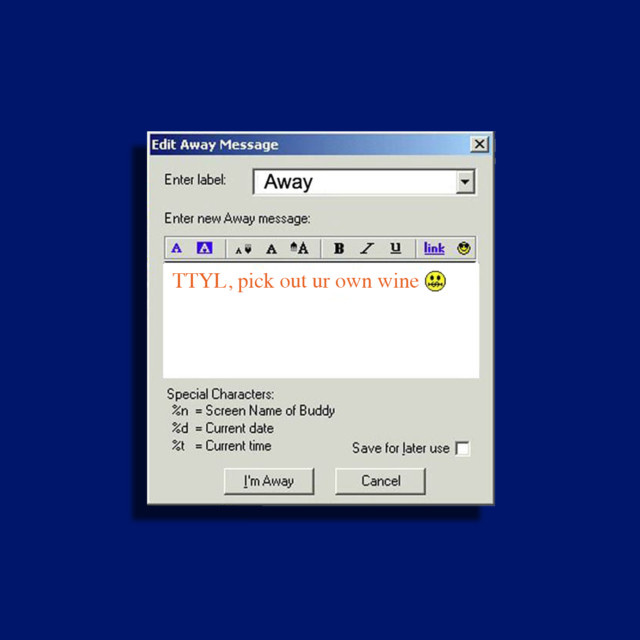If you’ve dined out in a high-end restaurant recently, you may have been faced with the difficulty of selecting a bottle of wine without the assistance of a sommelier. If you’re a frequent diner, you might have noticed this not just once, but as a trend across a certain sector of relatively casual restaurants that are also focused on offering delicious, interesting wines.
The reasons for this are complicated, but, unsurprisingly, they can be traced back to the beginning of Covid, when daily sales dropped and restaurant staff were laid off in droves. Wine, which was once an investment for restaurants to cash in on over the long term, was suddenly seen as the only safety net available.
“During Covid, it wasn’t just that we saw jobs getting cut,” explains Hamilton Weaver, a sales representative for Skurnik Wines who has experience in wine sales across the East Coast. “We saw restaurants auctioning off their wine cellars to make some cash that would allow them to keep the lights on.”
This shift from long-term to short-term thinking is one reason that sommeliers have dwindled. Before Covid, Weaver was tasting wine regularly with floor sommeliers who worked directly with customers — skilled, trained wine professionals who were on the floor most nights, chatting with customers about a restaurant’s wine list. Today, he says, he’s more often working with a corporate beverage director, someone who might oversee a handful of restaurants’ beverage programs.
“There are less sommeliers working right now,” Weaver says. “There are even less beverage directors in terms of people with autonomy over a single spot. It’s more corporate these days.”
Lots of sommeliers were laid off during the pandemic, which made sense: They were often higher-paid than line cooks and servers, and without a clear picture of when indoor, in-person dining would resume, their positions seemed expendable. But even as dining out resumed and jobs returned, the landscape has continued to shift.
“I think we’re still feeling the reverberations,” Weaver said. “There are people I know who are currently leaving — they made it through the worst of the pandemic, but now they’re realizing they’re not being paid enough and they’re working all the time, and they’re deciding to go pursue other things.”
Jamie Harrison Rubin has been a part of the changing tides of wine sales over the last two years. Rubin, an advanced sommelier and master sommelier candidate, was laid off from his job as beverage director at Ambra Restaurant Group, a small Philadelphia collective with four restaurants in 2020. Today, he runs Kidstuff Hospitality, a hospitality consulting firm.
“More than anything, a restaurant needs to have the will to employ a sommelier more than they need a basis of certain sales or a certain type of food,” Rubin says. “A good sommelier will justify their salary, without question.”
In 2021, wine sales decreased across the board, which contradicted predictions that millennials would continue to drink more wine than any other category. The report shows that restaurants were more interested in selling spirits, beer, and even spiked seltzers than wine. Weaver suggested that this drop in sales might be in part related to the exodus of wine professionals.
“When you don’t have floor sommeliers, you don’t really have people who are there to guide you and build that bridge between a run-of-the-mill wine and something that’s a little bit more interesting,” Weaver says. A young wine consumer might dabble a little, but it’s difficult to decode a sprawling, multi-page wine list without someone to help you.
Fewer floor sommeliers also spells fewer mentorship and training opportunities for young people in the beverage industry. Rubin says he’s seen the path to becoming a beverage director get shorter and shorter in recent years: People start as servers, move to bartending, then quickly become beverage managers and move into sales and distribution. The opportunity to train as a floor sommelier before becoming a beverage manager is less common, and people are moving up faster without being paid more. As a result, they move on quickly to better paying jobs with more support.
A series of scandals has shaken faith in the Court of Master Sommeliers, once a highly respected certification organization, causing fewer beverage professionals to seek out structured training programs. Though a handful of alternative training programs and certifications have popped up, nothing has replaced the intensity of training that the Court demanded.
“It’s not that I think it’s certification or bust,” explains Weaver. “But I see buyers who know nothing, who swear they know everything, and that’s a problem.”
Even as the gaps in wine knowledge broaden, the interest in learning — from both professionals and amateur drinkers — is still present. Rubin sees it weekly at Southwark Restaurant in Philadelphia, where he takes over the bar every Monday and pours whatever he wants.
“I largely live in a fantasy world where everyone comes to see me and trusts what I pour them and what I tell them to pour,” Rubin says. The series, lovingly dubbed Winewark, is an opportunity for wine lovers of all kinds to chat with Rubin, learn from him, and of course, drink some truly excellent wine. If the crowd there each week is any indication, the thirst for the education and insight that sommeliers provide certainly isn’t gone.
This story is a part of VP Pro, our free platform and newsletter for drinks industry professionals, covering wine, beer, liquor, and beyond. Sign up for VP Pro now!
